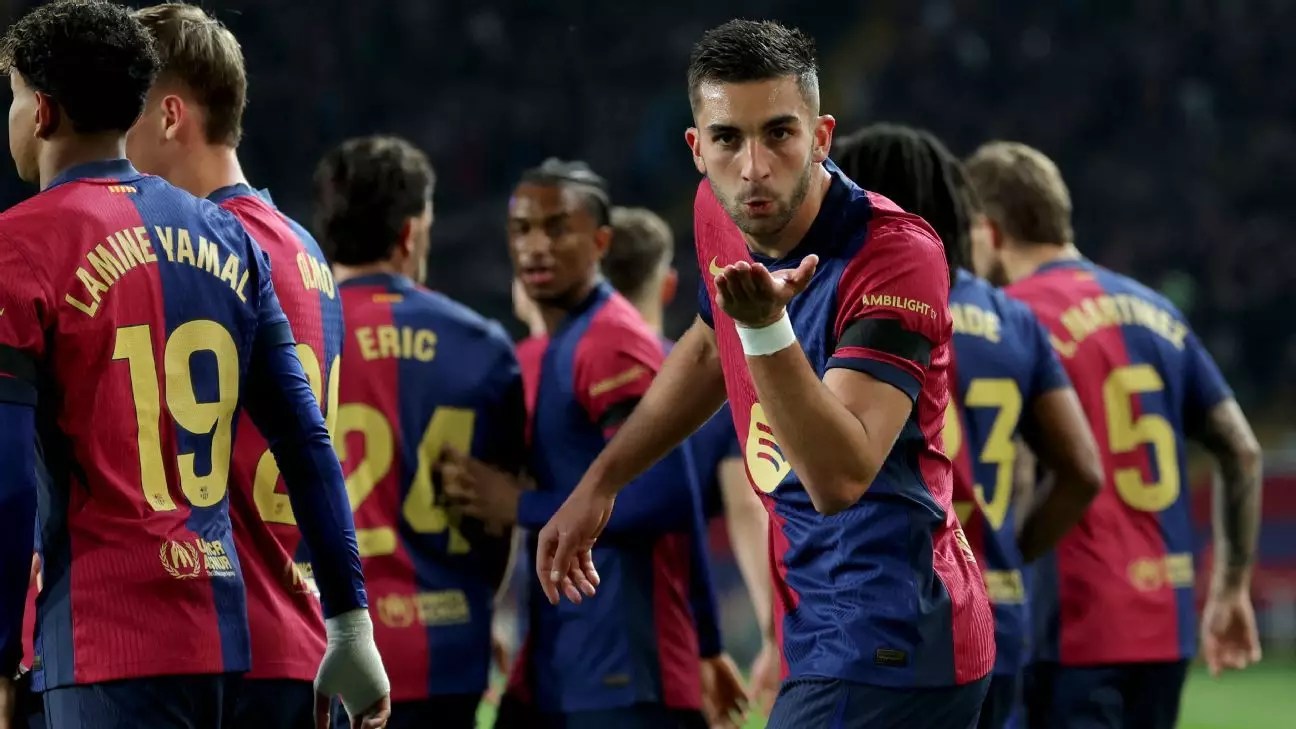In what could likely become a defining moment of the LaLiga season, Osasuna’s decision to appeal against Barcelona’s fielding of Iñigo Martínez has sent ripples through Spanish football. The crux of the controversy lies in the interpretation of FIFA’s regulations concerning player eligibility. Osasuna argues that the defender’s participation after withdrawing from the Spanish national team due to a knee injury violates strict rules designed to safeguard the integrity of the game. This situation raises an essential question surrounding fairness within professional football: Should clubs be held accountable for exploiting technicalities that put the spirit of competition in jeopardy?
Osasuna’s contention stems from Article 5 of Annex I of the FIFA Regulations on the Status and Transfer of Players, which explicitly states that a player who withdraws from international duty for medical reasons cannot participate in club matches for five days post the international window. Barcelona’s choice to field Martínez only four days after his supposed injury raises suspicions and could be viewed as bending the rules for competitive gain. This prompts a reassessment of how clubs navigate player eligibility around international fixtures, especially in a high-stakes environment like LaLiga.
The Context: A Clash of Needs and Timing
The timing of this appeal is also significant. Barcelona’s 3-0 victory over Osasuna not only solidified their position at the top of LaLiga, but it also puts Osasuna in a precarious spot, sitting just six points clear of relegation. Such a dynamic underscores how critical even a single match can be in the broader context of a season, amplifying the weight of Osasuna’s claims. Furthermore, the circumstances of the match’s scheduling add another layer of complexity. The rescheduling was borne of tragedy following the untimely passing of Barcelona’s club doctor, which Osasuna had no hand in causing, yet they find themselves facing Barcelona with a perceived advantage—one they argue is unjust.
This situation casts a shadow on the league’s structure concerning how matches are organized and the safeguarding of team integrity. If clubs are penalized for fielding players who do not meet eligibility requirements, any inconsistency in enforcement could undermine competitive fairness across the board, allowing top teams to wield their resources to their advantage, further distancing themselves from their rivals.
Implications for Football Governance
This controversy not only highlights a momentary clash between two clubs but also raises questions about the governance of football in Spain. The role of the RFEF in mediating claims like this will come under scrutiny. Will they prioritize a strict interpretation of the rules over the logical intent that guided their creation? The response will reveal much about their commitment to fair play in LaLiga.
As football fans and analysts, it is crucial to reflect on what this dispute means for the future of competition in Spanish football and whether it might embolden other clubs to challenge perceived injustices. In an era where transparency and accountability are paramount, incidents like Osasuna’s appeal present an imperative for the RFEF to reinforce not only the letter of the law but also its spirit. In a sport rife with incidents that test its ethical boundaries, ensuring a fair playing field may be one of the most essential tasks ahead for governing bodies worldwide.


Leave a Reply